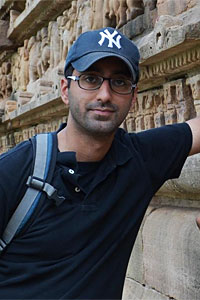After years of volunteering for a union in northern India, Kamlesh collected the signatures and affidavits she needed to run for village council, determined to fight for better wages and working conditions.
She was rejected because her home doesn't have a toilet.
Ms Kamlesh, who earns just US$80 (2,870 baht) a month doing odd jobs, lives in Haryana, the fourth Indian state in two years to pass a law making it tougher for villagers to stand for election in local panchayats, the lowest tier of the world's largest democracy. Local candidates must have no outstanding electricity bills, a minimum level of education, no pending criminal charges -- and a toilet.
"I barely have enough money to put food in my children's bellies -- I certainly can't afford to spend money on defecation," said Ms Kamlesh, a 32-year-old mother of two who goes by one name. "I don't need a toilet to understand my community's problems."
The requirement to own a lavatory in a nation where half the population defecates outdoors has raised fundamental questions about elitism in India's politics. If all 29 states adopted similar laws, more than 600 million people would be barred from election -- the equivalent of banning everyone in North America from politics.
Three out of the four states that have made toilet ownership mandatory for candidates are governed by the ruling Bharatiya Janata Party of Prime Minister Narendra Modi, who launched a nationwide campaign to eradicate open defecation.
The debate underscores the conflict between India's efforts to improve some of the worst living standards among major emerging markets, while guaranteeing political representation for its poor and marginalised.
The panchayat elections in Haryana, first scheduled for June, were delayed after the law was challenged in India's Supreme Court. The case, which could set a precedent for elections throughout the nation, was brought on behalf of Savita Devi Kaidan, who, like Ms Kamlesh, had her candidacy rejected.
Kirti Singh, a lawyer representing Ms Kaidan, has argued that Section 14 of India's constitution guarantees every person equal rights to contest elections. Indian Attorney-General Mukul Rohatgi, a Modi appointee, is representing Haryana in the case. Singh, Rohatgi and BJP spokesman GVL Narasimha Rao all declined to comment while the case is ongoing.
Mr Modi's "Clean India" campaign includes a pledge to build 50 million toilets by the 150th anniversary of Mahatma Gandhi's birth in 2019.
The effort aims to halt the contamination of groundwater that causes illnesses such as diarrhoea and cholera, costing the nation about $54 billion a year, according to the United Nation's Children's Fund.
Jack Sim, founder of the Singapore-based World Toilet Organisation, is among proponents of Haryana's new laws.
"This is an innovative and exemplary model that should be applied the world over," said Mr Sim, whose organisation works in more than 50 countries.
"If a person doesn't have a toilet, they're setting a bad example as a leader in public office. I think every public figure should have a toilet, from teachers to doctors to lawmakers."
While the laws may have good intentions, they risk leading to further divisions in a society already riven by class and caste, said Anirudh Krishna, a professor of public policy and political science at Duke University who grew up in New Delhi.
"This all harks back to the image urban India has of rural India: That it's backward, incompetent and unable to make decisions -- which just isn't true," Mr Krishna said.
"This is dangerous legislation because it pits one part of the country against another part of the country without recognising the rhythms of life and trajectories of the future."
In 1992, India amended the constitution to formalise the power of panchayats, or village councils, that have governed rural life for centuries. The move recognised panchayat elections and set quotas for representation of women and people on the lower rungs of the country's ancient caste system.
Upholding Haryana's law would mark a setback for India's efforts to spread democracy down to poorer villages, said Nikita Sud, an associate professor of development studies at Oxford University.
"These are caveats to democracy," Ms Sud said. "One person, one vote becomes one clean person, one educated person. Then it's not democracy any longer."
In her village of Lahli, Ms Kamlesh stands outside the six-bedroom bungalow of the present head of the local panchayat, Bahadur Singh, determined to fight for the right to stand.
"Our current village leader lives in this palace and has no idea who we are, let alone what our needs are," she said. "We'll have a country full of Bahadur Singhs if the law is upheld and our needs will be forgotten." Mr Singh twice declined to comment.
Meanwhile, Ms Kamlesh is trying to solve her sanitation problem. She said she hasn't received a toilet yet despite signing up to receive one from Mr Modi's national programme several times. If the law stands, she said she'll have to buy one herself.
"That money will come from somewhere else, likely from our school fees or food bills," she said, sitting on a mattress of knotted nylon in the dark, one-room home she shares with two other families. "We will have to make sacrifices."
